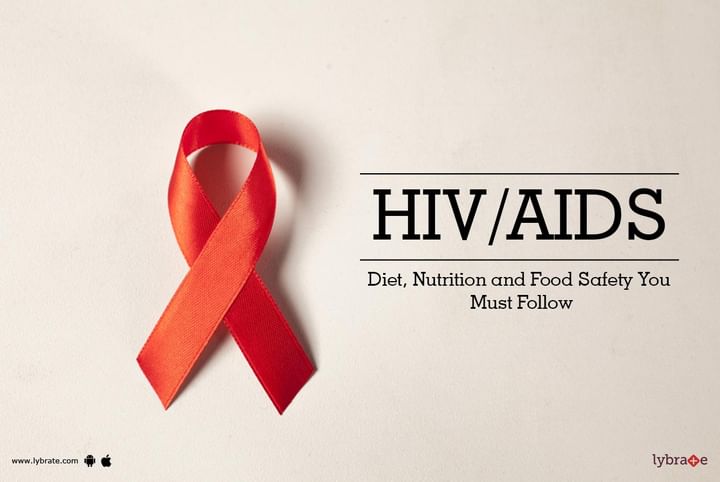HIV/AIDS: Diet, Nutrition and Food Safety You Must Follow
HIV/AIDS is a type of STDs (sexually transmitted diseases) which is caused by the Human Immunodeficiency Virus (HIV). The HIV virus attacks the immune system and makes the body vulnerable to other diseases. AIDS is the last stage of the HIV infection; HIV takes about 10 to 12 years to fully culminate into AIDS. AIDS completely destroys the immune system and leads to fatal health conditions and diseases such as cancers and other infections because of AIDS.
Causes-
HIV is a retrovirus that infects the vital organs of the human immune system. The virus progresses in the absence of antiretroviral therapy. The rate of virus progression varies widely between individuals and depends on many factors (age of the patient, body’s ability to defend against HIV, access to healthcare, existence of coexisting infections, the infected person’s genetic inheritance, resistance to certain strains of HIV).
HIV can be transmitted through:
- Sexual Transmission. It can happen when there is contact with infected sexual secretions. This can happen while having unprotected sex, including vaginal, oral and anal sex or sharing sex toys with someone infected with HIV.
- Perinatal Transmission. The mother can pass the infection on to her child during childbirth, pregnancy, and also through breastfeeding.
- Blood Transmission. The risk of transmitting HIV through blood transfusion is nowadays extremely low in developed countries, thanks to meticulous screening and precautions. Among drug users, sharing and reusing syringes contaminated with HIV-infected blood is extremely hazardous.
Contrary to popular belief, HIV can never spread by means of kissing as the virus cannot survive outside the body.
Symptoms-
- The early symptoms of HIV appear within a few weeks of contamination by the virus. The early symptoms include headache, pain in the muscles and the joints, rashes and inflated lymph nodes. These symptoms tend to disappear within 2 to 3 weeks.
- The next set of symptoms might appear after a few years and these are persistent. The symptoms include, but are not limited to fatigue, loss of body weight, inflated lymph nodes, fever, a sensation of numbness near the limbs, pain when you try to swallow, sores in the mouth and sweating at night.
If you are diagnosed with HIV, you should:
- Try to maintain a daily diet containing vegetables, legumes, and fruits which provide you energy.
- Try to include a little bit of fat, carbohydrates (at least 3 servings of vegetable per day), calcium (dairy products) and low-fat protein sources (generally 80-150 gram per day of fish, skinned chicken, low-fat cheese etc.) in your everyday meal.
- Maintain a daily calorie intake of 17-25 calories per pound depending on whether the person is losing weight.
- Vitamins and minerals are particularly necessary to repair the cells damaged by the HIV virus.
So, it is necessary to intake foods such as eggs, milk, peanuts, green vegetables, meat, beans and broccolis on a regular basis, if you have been diagnosed with HIV.
If you are suffering from HIV, you must maintain the following food safety measures:
- You should try to restrict the intake of fat
- Restrict your alcohol intake
- You should try to avoid fast foods
- You should also limit your regular sugar intake and should avoid foods with extra sugar
If you wish to discuss about any specific problem, you can consult a general physician.



+1.svg)
